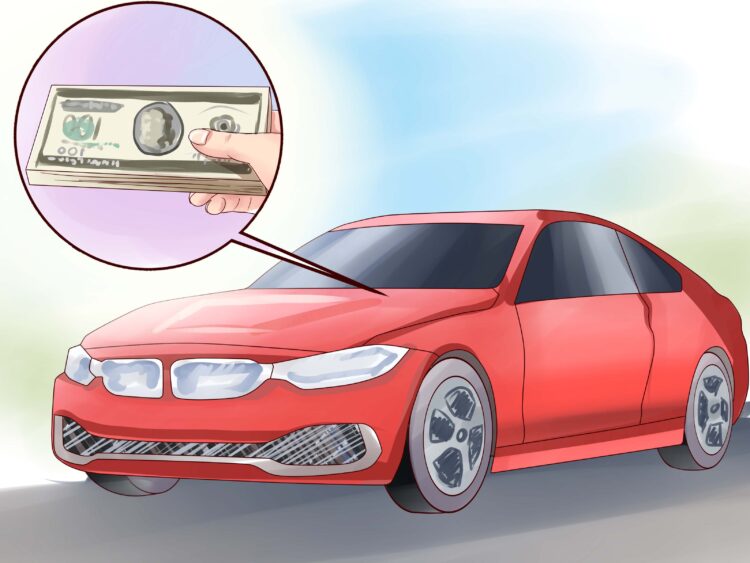So you want to buy a car in Canada but don’t know how to finance a car in Canada. There are many options you could explore to pay for a car in Canada. You shouldn’t worry about anything if you don’t have the entire amount to pay upfront.
Most Canadians finance their cars using loans acquired from banks or any other lending institution. You could also use this option to either lease a car or purchase one. But we’ll also look at more funding alternatives to help you raise money to buy your best car.
Page Contents
How to Finance a Used Car in Canada

Source: wikihow.com
So, how do you finance a used car in Canada? There are only two ways that a majority of Canadians use to secure a loan for financing a used car. That is, financing through a bank or dealership. Here is how to finance a used car in Canada.
1. Financing Through a Bank
Banks are among the oldest financial institutions and are popular for providing many financial services, including loan financing. In Canada, the first financial option car buyers would think of when acquiring a car through a loan would be the bank.
It is not given that you must choose the bank you are currently a member of, even if it doesn’t offer favorable loan rates. Compare the rates of several banks and borrow from one with the lowest loan rates. It will help save a few hundreds of dollars on interests.
If you find out your bank isn’t offering favorable loan rates, the door is always open to register with another bank or credit union. But this will entirely depend on your creditworthiness and level of income, among other factors.
Benefits of Financing through a Bank

Source: usatoday.com
Here are some of the advantages of getting a car loan from a bank.
- Quick Processing of Loans: The main advantage of borrowing from a bank is the promise for a quick loan, which depends on the level of trust the bank has in you. You can earn this trust by establishing a high credit score.
- Important Financial Advice: A financial advisor can advise you better than how a salesperson would do it. They will tell you all the potential risks inherent in your decisions and how much to finance a car based on your financial situation.
- Lenient Loan Terms: Your bank understands you better and will give you ample time to pay the loan. That will allow you to focus on other car expenses, including payment of insurance premiums. Thankfully, Surex can help you get cheap insurance quotes in Halifax and the rest of Canada.
- Flexible Loan-Payment Terms: Since most banks would like to retain you as their customer, they provide room for negotiations when you find it hard to pay. You can negotiate for a lower payment and extend your payment period.
Shortcomings of Financing through a Bank
Here are the few drawbacks of financing a car purchase using loans from banks.
- Fixed Interest Rates: Banks have stricter rules and are less likely to change their interest rates. So you will have to grapple with the high rates to the end.
- Bias on New Cars: Going for a used car never seems to be the best option if you’re financing it through a bank. Banks will always prefer financing purchases of new cars rather than used ones that depreciate faster than their counterparts.
- High Credit Scores: Compared to dealerships, banks have stricter rules and regulations for their lending process. You must have a high credit score to secure funds with a bank, which is not the case with dealership financing.
- Bureaucratic Loan Processing Procedures: The bank loan processing procedure is somewhat bureaucratic and ineffective if you need an immediate loan. You’ll have to wait for a few business days to get the application approved.
2. Financing Through a Dealership

Source: covertchryslerdodgejeepram.com
Financing your car through a dealership is the second option to consider when financing a car purchase using a loan. It’s a practical alternative if you seek an option on how to finance a car with bad credit records with the banks.
The process is fast and smooth. You can walk into a dealership in the morning and walk out driving your car. Like the banking option, this also has its fair share of advantages and disadvantages, as shown below.
Benefits of Financing through a Dealership
Here are the advantages of buying a car through a dealership.
- Quick and Convenient Loan Processing: The main advantage of this option is its convenience and quick operations. You’ll most likely get an approval of your loan faster with this method and get home in your car on the same day.
- Bad Credit Scores Don’t Affect Your Loan Processing: If you have a low credit score, you can still qualify for a dealership loan to buy your dream car. They will do everything possible to see their used car getting sold off quickly.
- Unfixed Interest Rates: A car dealership is a business that needs to see its inventory moving. So, they are willing to negotiate the interest rates to simplify your car purchase process. You could also get some bonuses to strike a deal.
Shortcomings of Financing through a Dealership

Source: caranddriver.com
Here are the disadvantages of financing a car through a dealership.
- Strict Payment Collection: While dealerships can be nice with their interests and terms, they won’t go easy on you if you fail to make payments on time. They won’t allow you to come up with deviations for your payment over time.
- More Expensive: Financing a car through dealerships can be more costly than at a bank. They usually need large cash deposits, followed by monthly payments and interests. In the long run, you end up paying more than the car’s worth.
- High-Interest Rates: You will need good negotiation skills to convince the seller to bring down the high-interest rates. Since dealerships are in business, they will always charge higher rates than banks.
Final Words
Now that you know how to finance a car in Canada, you can quickly get funds to buy your dream car. Evaluate the pros and cons of the two financing options we’ve discussed, and choose one that fulfills all your car purchase needs.





